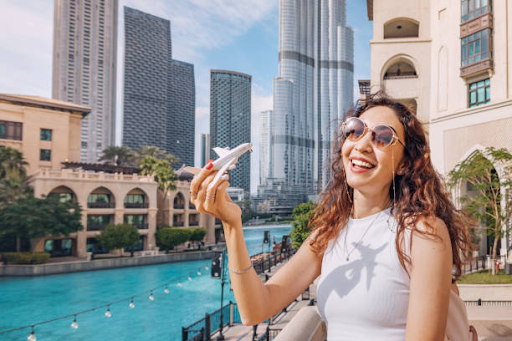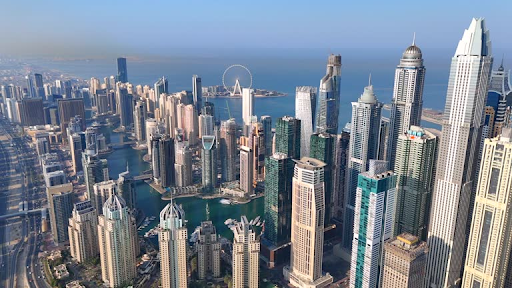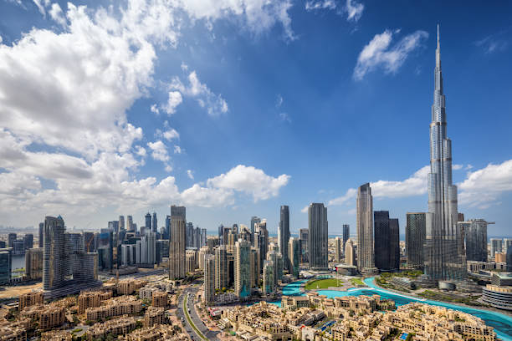
Ultimate Guide to Securing a Residence Visa in Dubai: Step-by-Step Process
Securing a Dubai resident visa is an essential step for expatriates looking to live and work in this dynamic city. With its rich culture, stunning architecture, and thriving economy, Dubai attracts individuals from all over the world. Whether you’re moving for employment, investment, or family reasons, understanding the process can make your transition smoother. This comprehensive guide will walk you through the necessary steps to obtain your Dubai residence visa.
Understanding Residence Visas in Dubai

What is a Residence Visa?
A residence visa is an official permit that allows foreign nationals to live and work in Dubai for a specified period. It forms the basis for residency in the UAE and is typically linked to your employment or sponsorship by a family member. Having a residence visa provides access to various services, such as schooling for children, healthcare, and even property ownership in some cases. As a holder of a residence visa, you are granted the legal status to exist in the UAE and can engage in daily activities like shopping, dining, and commuting.
Types of Residence Visas Available in Dubai
Dubai offers several types of residence visas, catering to different needs. Some of the most common include:
- Employment Visa: Sponsored by a company, this visa is for employees coming to work in Dubai.
- Investor Visa: For foreigners who invest a certain amount in a UAE-based business.
- Family Visa: Allows expatriates to bring their family members to live in Dubai based on their residency status.
- Student Visa: Can be obtained by individuals enrolled in an accredited educational institution.
Each of these visas has its own set of requirements and benefits, making it imperative to select the one that aligns best with your personal and family circumstances.
Eligibility Criteria for a Residence Visa

Who Can Apply for a Residence Visa?
Eligibility for a dubai residence visa varies depending on the type of visa being applied for. Generally, expatriates who have secured employment, invested in the UAE, or have family members residing in Dubai can apply for a residence visa. The primary conditions include being of a certain age, usually between 21 to 60 years, and possessing a clean legal and health record. For family sponsorship, the applicant must be earning a minimum salary, which varies according to the number of dependents. It is essential to review the specific criteria for each visa type to ensure eligibility before you begin the application process.
Income and Employment Requirements
Different residence visas come with distinct income and employment prerequisites. For instance, an employment visa often requires that the applicant holds a job with genuine employment contracts and meets the minimum salary threshold. The minimum salary varies greatly, depending on the profession and whether the individual is sponsoring dependents. On the other hand, those applying for an investor visa must provide proof of investment in a UAE business, and there are set financial requirements for this category as well. As for sponsorship visas, the sponsor’s income level and employment status will determine whether the application is approved.
Document Preparation

Essential Documents Required for Application
Preparation is key when applying for a Dubai residence visa. Essential documents that must be gathered include:
| Document | Description |
|---|---|
| Passport | A valid passport with at least six months’ validity left. |
| Photographs | Passport-size photographs that meet Dubai’s photo requirements. |
| Offer Letter | Employment offer letter or investor’s certificate, as applicable. |
| Health Certificate | A medical fitness certificate from an approved medical center. |
In addition to these, applicants must also prepare evidence of financial stability, such as bank statements, and any other documents relevant to the specific visa type. Having all paperwork in order can exponentially increase the likelihood of application approval.
Additional Supporting Documents
Beyond the essential documents, certain scenarios may require additional supporting paperwork. For instance, family sponsorship might necessitate documents proving family ties, like marriage certificates or birth certificates for children. If you are applying as an investor, you may need to submit your business license and financial statements of your investment. For students, enrollment letters from recognized educational institutions are essential. Ensuring that all documents are authentic and correctly translated into Arabic or English when necessary will bolster your application.
Application Process for a Residence Visa

Step-by-Step Instructions to Apply
The application process for a Dubai residence visa typically follows a structured path, starting from document preparation to submission. The first step involves ensuring that you meet all eligibility criteria and have all the necessary documents ready. Once prepared, you can either submit your application online through the UAE government’s official portals or visit an immigration office in person. Online submissions have become increasingly popular due to their convenience and expedited processing times. It’s important to fill out the application forms carefully to avoid any errors that could delay the process. Reviewing your application thoroughly before submission can prevent unnecessary complications and help ensure a smooth review process.
Submission Methods: Online vs. In-Person
When it comes to submitting your residence visa application, applicants have the option to choose between online and in-person methods. Online submission is often favored as it allows applicants to track the status of their application in real-time, reducing the anxiety associated with waiting for feedback. Moreover, online platforms often offer user-friendly interfaces that guide users through the application process, minimizing the chances of application errors. In-person submissions, while traditional, may involve longer wait times at immigration offices and require a personal visit to either your company’s HR department or designated government offices. Consider your own schedule, comfort level, and availability when deciding on the method of submission. Ultimately, both submission routes have their advantages, so choose the one that best meets your needs.
Medical Examination and Health Insurance
Importance of Medical Fitness Tests
One of the essential steps in securing a residence visa is passing a medical fitness test. This requirement is in place to ensure that applicants do not harbor any contagious diseases that may pose a public health risk. The medical examination typically involves blood tests, chest X-rays, and various other health assessments, depending on the requirements set by the UAE government. It is crucial to complete this test at a health center accredited by the UAE government or through your employer. Failing the medical examination can easily lead to rejection of your visa application, making it essential to maintain good health before applying. Being fully aware of the medical standards required helps applicants prepare adequately, thereby increasing the chances of passing the assessment.
Health Insurance Requirements for Visa
Health insurance is another critical factor in obtaining a Dubai residence visa. The UAE mandates that all expatriates secure health insurance coverage that meets specific minimum standards before their visa can be issued. This requirement is designed to protect residents and ensure that they have access to necessary healthcare services without financial burden. The insurance must cover essential medical services and include a repatriation clause in case you need to leave the country due to health issues. Insurance providers in Dubai often offer various plans tailored to different needs, ensuring that expatriates can find suitable options. Make sure to keep your insurance coverage active throughout your residency and check if it aligns with the visa requirements.
Visa Fees and Processing Time
Breakdown of Application Fees
Understanding the cost associated with obtaining a Dubai residence visa is vital for financial planning. Various fees apply based on the type of visa and the specific services involved in the application process. Generally, the main costs include the visa application fee, medical examination fees, and health insurance premiums, among others. The total fees can range from a few thousand dirhams to significantly higher amounts, depending on your needs and the visa type. For instance, employment visas, family visas, and investor visas all have different fee structures. Ensuring that you have budgeted enough for these expenses is essential, as failure to pay the necessary fees can stall or even cancel your application.
Typical Processing Duration for Residence Visas
Processing times for residence visa applications can vary considerably based on several factors, including the volume of applications at the immigration department and the completeness of your documentation. On average, applications may take anywhere from a few days to several weeks for processing. For those who submit online, the process can sometimes be expedited due to streamlined procedures. However, applicants should be patient and allow sufficient time for potential delays, especially during peak times of the year. Staying informed about the status of your application can alleviate some anxiety as you await approval. Always factor this timeline into your planning, especially if you have specific timelines by which you need to relocate.
Receiving Your Residence Visa
What to Expect After Visa Approval
Once your residence visa has been approved, applicants receive a notification from the relevant authorities. This approval generally lasts for 60 days, during which you must complete any remaining formalities, like finalizing health insurance or securing a residency permit. It’s crucial to check the visa’s validity and ensure all details are correct before proceeding. You will typically receive a “Visa Approval Notice,” which acts as a temporary document until you finalize all the necessary elements. Upon completing these requirements, you can proceed to obtain your Emirates ID, which serves as an identity card for various functions within the UAE. Keep your approval notice safely stored until you have the final documents in hand, as you may need to present it for various tasks.
Final Steps After Receiving Your Visa
After you receive your residence visa, the final steps include obtaining an Emirates ID, which further solidifies your residency status. This biometric-based identification card is essential for many day-to-day activities, such as opening a bank account or accessing healthcare services. The Emirates ID application usually occurs in conjunction with your visa, but make sure to schedule this promptly after receiving your residence visa. Additionally, familiarize yourself with local laws and regulations to ensure compliance and avoid any legal issues while residing in Dubai. Setting up a local bank account and securing accommodation should follow closely behind, helping you settle into your new life seamlessly.
Maintaining Your Residence Visa
Renewal Process and Requirements
Maintaining your residence visa involves keeping track of its expiration date and ensuring you follow the procedures to renew it on time. The renewal process generally requires similar documentation as your initial application, such as updated health certificates and proof of continued employment or sponsorship. It’s advisable to initiate the renewal process at least a month before your visa expires to allow for any potential delays. Staying on top of these dates prevents any lapses in residency status, which can lead to complications. Employers generally assist employees with the renewal process; however, it’s essential to remain proactive in monitoring your visa status.
Key Compliance Guidelines
Beyond renewals, the compliance guidelines involve understanding and adhering to local laws and regulations. For instance, you must inform the immigration department of any changes in employment status or personal circumstances like marriage or divorce. Failing to do so can result in fines or visa cancellation. It is also vital to remain aware of your visa conditions, especially if they involve sponsorship or specific employment ties. Regularly checking the UAE immigration website for any updates on rules or requirements ensures that you remain within compliance. Maintaining good standing ensures a smoother experience during your residency in Dubai and mitigates the risk of legal challenges.
Concluision
Securing a residence visa in Dubai can seem daunting, but by following this step-by-step guide, you can navigate the process effectively. From understanding the different types of visas to ensuring you have all required documents, each step is crucial to your success. Dubai offers a vibrant lifestyle and opportunities, making it a desirable place for expatriates. By staying informed about eligibility criteria, application processes, and compliance requirements, you can significantly ease your transition. Don’t forget to maintain your status and adhere to local laws to ensure a smooth experience in this dynamic city.
Frequantly Asked Questions
1. How long is a residence visa valid in Dubai?
A residence visa in Dubai is usually valid for 2 or 3 years, depending on the type of visa and your employment status.
2. Can I apply for a residence visa without a job in Dubai?
Yes, you can apply for a residence visa through other means, such as investor status or family sponsorship, even if you are not currently employed.
3. Is health insurance mandatory for obtaining a residence visa?
Yes, health insurance is a mandatory requirement to secure a residence visa in Dubai, as it ensures that residents have access to healthcare services.
4. What are the common reasons for residence visa application rejection?
Common reasons for rejection include incomplete documentation, failure to meet health standards, or not fulfilling eligibility criteria related to income and employment.
5. Can I work in Dubai on a residence visa?
Yes, a residence visa allows you to live and work in Dubai, provided that it is linked to your employment or sponsor.


